THE EMPIRE
DIAPER-LINEN SERVICE,
THE FAMILY BUSINESS
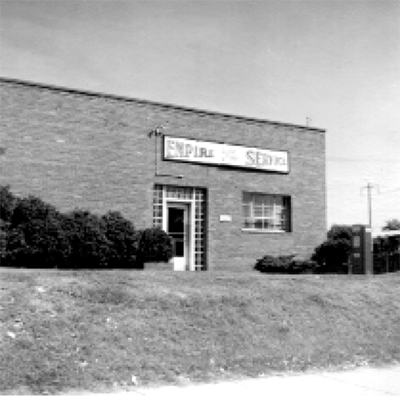
The Empire Diaper-Linen Service was the brainchild of my father’s brother, James Eliron (Jim, JE). The idea originally came from working with a patient who had found it difficult to obtain diaper service from the local white businesses. After turning his idea into a practical plan, he gained capital from a commercial bank, and from there, he immediately got his brothers to join him in the venture. The name of the business was the Empire Diaper-Linen Service, Incorporated; and it was located at 4628 Minnesota Avenue, NE, in the Deanwood section of Washington, DC.
All four of the Roberts brothers were involved with the family business in some capacity. James (Jim) Eliron was the president, Russell Edward was the vice president, Henry Clay was the secretary, and my father Horace (Bob) Molvin was the treasurer and manager. When they started the business, there were twenty-one employees; and, eventually, it grew to twenty-five employees and two plant engineers.
The one-story building on Minnesota Avenue included four washers, two dryers, three extractors, a huge ironing machine, and other items that were used for sanitary and efficient laundering. For pickup and delivery, there were also two modern trucks, which eventually grew to five trucks. They had all modern equipment that included a $22,000 automatic folder for flatwork. Not only did they launder diapers, they also ran a linen service. Through this linen service, they were responsible for laundering towels and other linens for schools, hotels, and other establishments like the U.S. Senate and Howard University.
At the time the business was established, my father’s brother Jim (James Eliron, JE) had been living in Washington, DC, since 1926. His brothers were living in Mount Pleasant and joined him in 1948 when the laundry service was first established. The laundry was formerly known as the ABC Service and did about $175,000 worth of business that rapidly made progress throughout the years.
The biggest single item that they serviced was laundering baby’s diapers. At one time, they estimated that they may have had twenty-two thousand diapers on hand and had to order another one hundred dozen to meet the demand. Since there was a lot of wear and tear on baby’s diapers because of frequent washings and the antiseptics that were used to keep them sanitary, eventually, many of them could no longer be used for customers. Those worn-out diapers would then be sold to the ragman.
It was estimated that most babies required an average supply of about eighty-four diapers a week, even though some could in fact use as few as forty-two. For most families, the service was used for about fourteen to eighteen months. The payment plan allowed customers to pay in advance for a month’s supply of diapers. With that first supply of diapers, a white enameled container would come with it, complete with deodorizer and a cotton bag that was used inside of the container to collect the soiled diapers. Then twice a week, the route man would come to remove the container of soiled diapers and leave a set of fresh diapers that equaled the amount that was picked up from the week before.
When the brothers first started the business, they were mainly doing wholesale business, but the business eventually grew to include retail work. In the beginning, they encouraged a lot of door-to-door service and then offered a discount on laundry that was brought directly to the business. In the beginning, most of their business was on a wholesale basis coming from white people. The type of business they were doing at that time was towel and linen service for schools, hotels, and government agencies. They admitted that in the beginning when they were learning the industry, they had lost a fortune trying to learn the business and get on their feet.
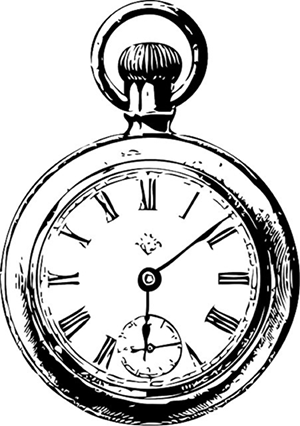
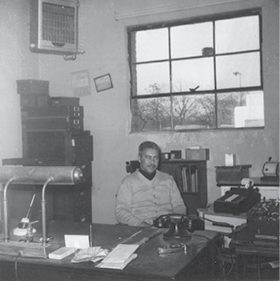
My father’s brother Henry is monitoring the office and taking care of laundry business.

Laundry employee hard at work, working on financial records.
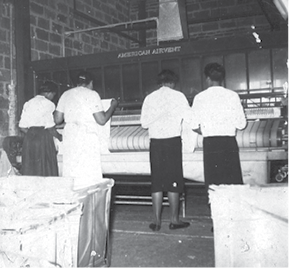
Laundry employees systematically operating a machine that folds and sorts diapers.

Laundry employee operating machinery that sorts and folds diapers.
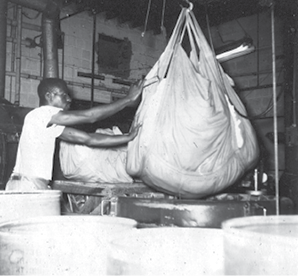
Laundry employee prepares to wash a load of soiled diapers in machine.
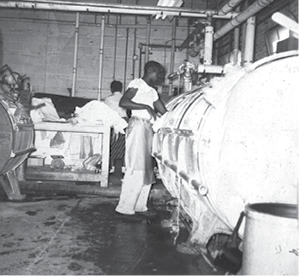
Laundry employee washing soiled diapers in large heavy duty machinery.
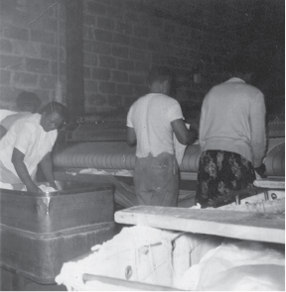
Laundry employees working hard washing soiled diapers.
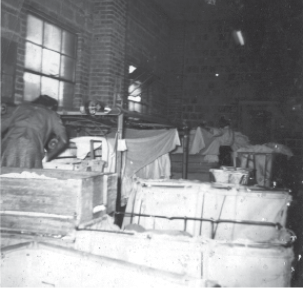
Laundry employee sorting and arranging diapers.

Laundry employee preparing diapers for cleaning.

Heavy duty machinery used for large capacity loads of diapers.
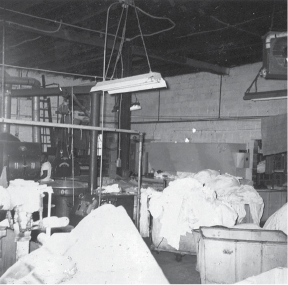
Area of laundry that prepares diapers for washing and drying.

Laundry machinery used for cleaning diapers.
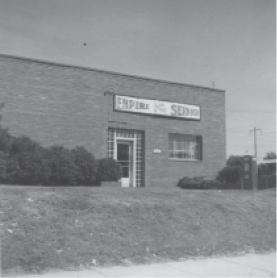
The front of the Empire Diaper-Linen Service in the Deanwood section of NE Washington, DC
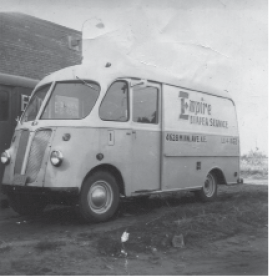
One of the many trucks used at the laundry for drop off and pickup service.

My father Horace Sr. in front of the Empire Diaper-Linen Service, preparing for his work day.
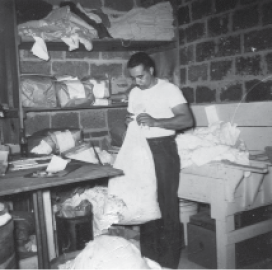
My father working behind the scene as well as in the office.

My father often worked long hours and weekends, just as his brothers often did.
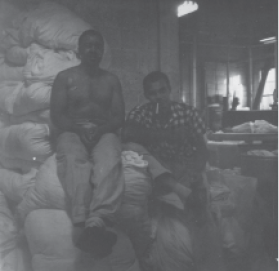
My father and his nephew Ronald taking a break from working.
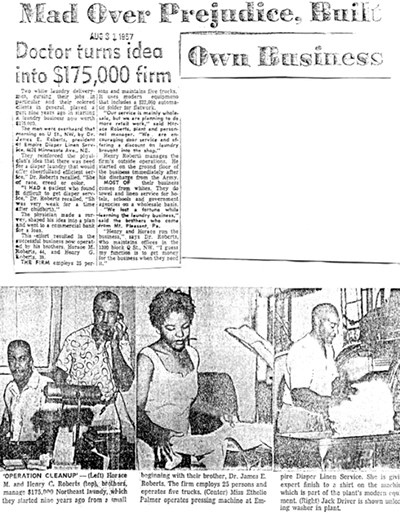
One of many articles that appeared in local newspapers highlighting the success and service the laundry provided to the community.
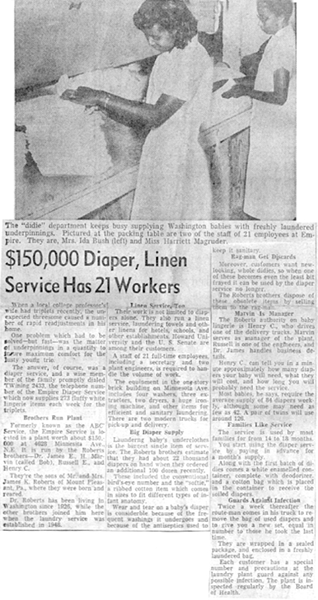
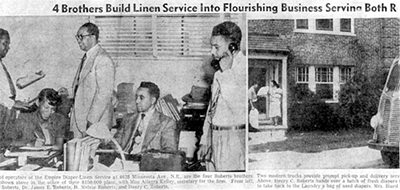
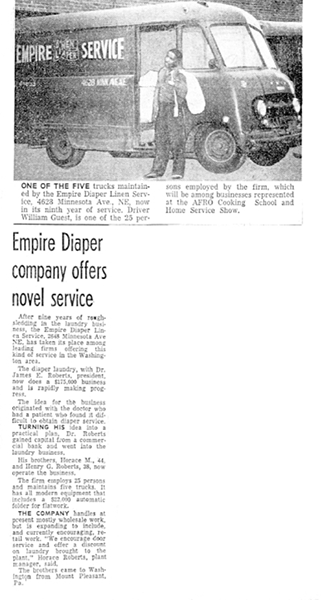
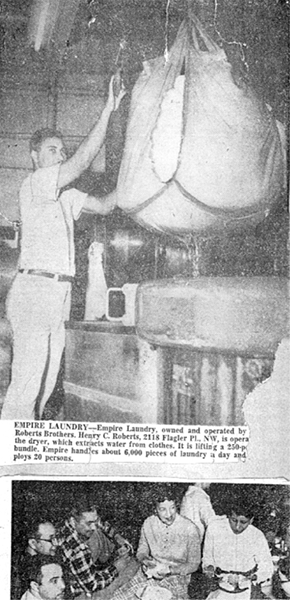
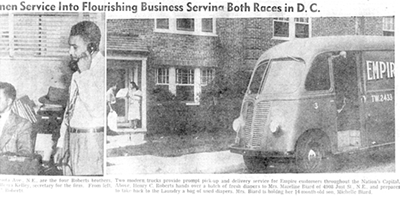
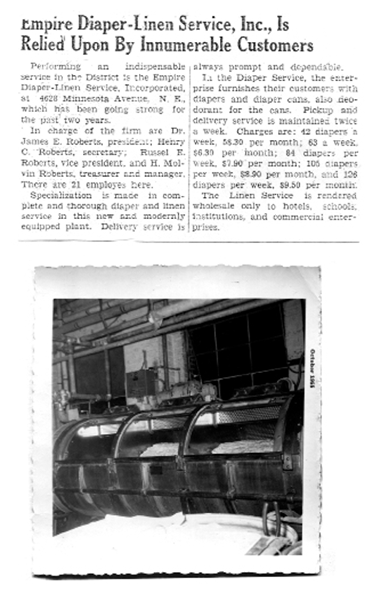
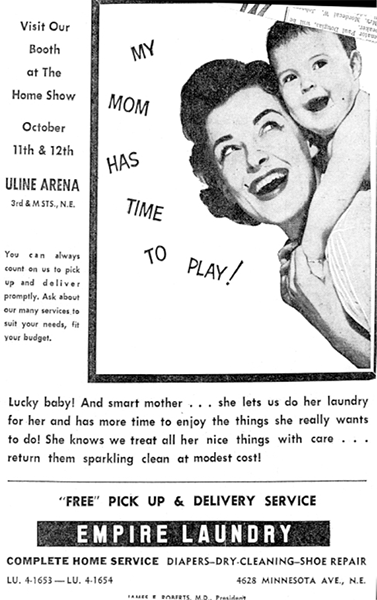
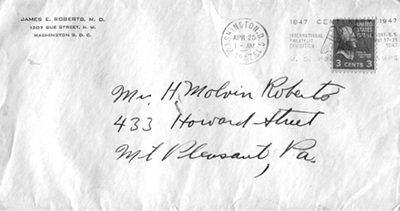
Letter to my father from his brother Jim (James Eliron/JE) updating him on the status of the building that was purchased for the business. His letter also included concerns about their brother Russell’s involvement in the business. The letter was sent in 1947.
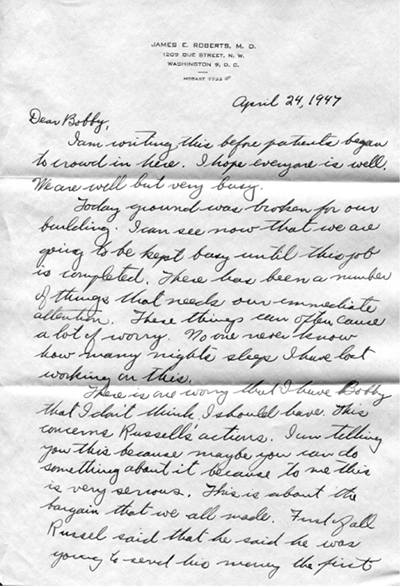

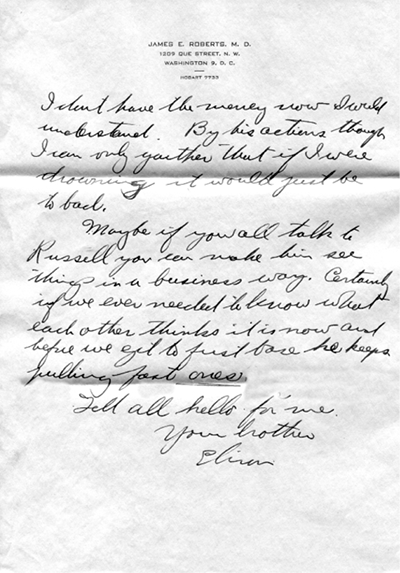
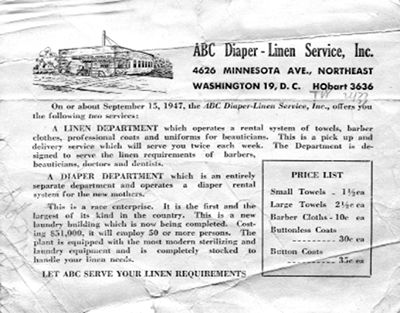
Copy of a business card advertisement that was distributed for marketing and advertising purposes. The business was formerly known as the ABC Diaper-Linen Service, Inc.
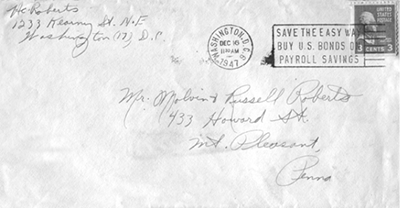
Letter from my father’s brother Henry updating my father and his brother Russell on the status of the business in 1947.
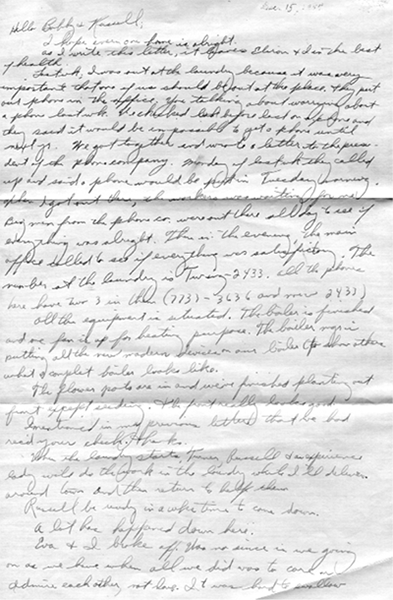
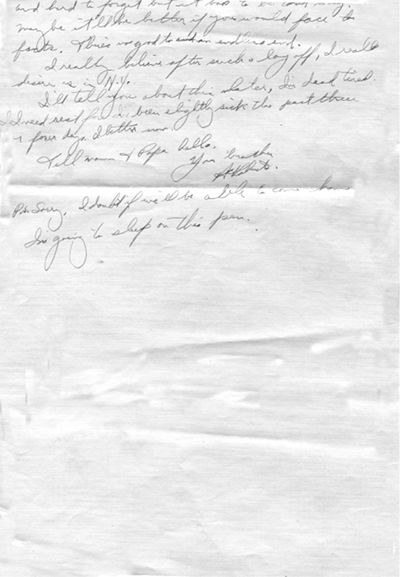

Documentation certifying that my father owns one common share of the capital stock of the ABC Diaper-Linen Service as of April 15, 1948.
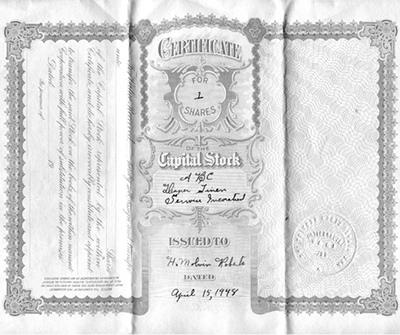
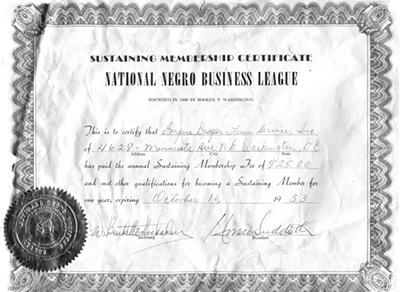
Certification identifying the Empire Diaper-Linen Service, Inc. as a sustaining member of the National Negro Business league on October 16, 1953.
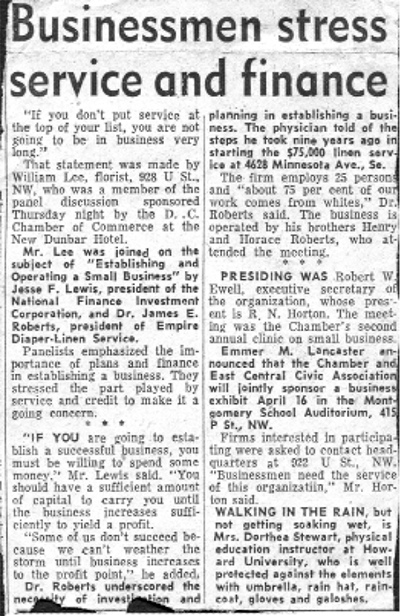
|
My father’s brother Jim (James Eliron/JE) attended a meeting sponsored by the DC Chamber of Commerce at the New Dunbar Hotel in Washington, DC. During the meeting, participants networked and learned more about operating a small business and managing finances. |
Uncle Jim was part of the panelists, and his topic emphasized the importance of investigation and planning. He discussed the $75,000 linen service business he was operating with his brothers. |